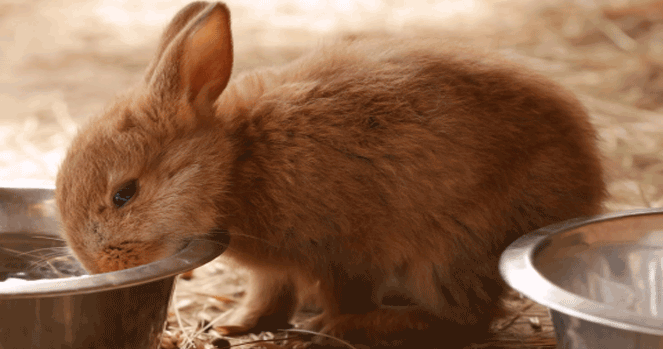Feeding Tips for Your Small Animals
From pet rabbits, chinchillas and squirrels to guinea pigs, gerbils and mice, small animals provide big fun for many pet owners. These “pocket pets” are ideal for people who live in smaller homes, don’t have time for a more active animal or just like a lower maintenance pet. But while they are lower maintenance – it’s still important to ensure they’re getting adequate nutrition.
When choosing a diet for your small animals, look for a complete, pelleted feed. A complete feed contains all the vitamins, minerals and fiber needed to support the health and well-being of your pet. It also means no additional supplements or foods are necessary – everything your pet needs is in the bag.
When choosing a complete, pelleted feed:
-
Pay attention to fiber levels. Herbivores like rabbits and guinea pigs have digestive tracts designed for large amounts of plant fiber. Choose feed with a high fiber content to ensure good digestive tract health. Rabbit pellets should be 18-22% crude fiber and guinea pig pellets should be 14-18% crude fiber.
-
Learn about your hay options. Many herbivores are fed hay or fresh grass along with their pellets. There are a variety of hays, but two of the most popular options are timothy or alfalfa. Timothy hay is lower in protein and calcium, which may be better for your pet depending on his/her life stage. Alfalfa hay is higher in protein and calcium, which is good for young, pregnant or lactating animals that need more calcium. Identify your animal’s life stage needs before purchasing hay or grass.
-
Look for yucca shidigera. Although difficult to pronounce, this natural extract helps to reduce ammonia odors in your pet’s waste. It can help keep their habitat fresher smelling – a benefit for both you and your pet.
-
Find one with flaxseed. Flaxseed is a source of omega-3 fatty acids, which are good fats to support reproduction, skin and hair condition, and growth and development.
-
Beware dried fruits and nuts. While they sound delicious to humans, feeds with high amounts of dried fruits and nuts can cause serious digestive problems in small animals that select these items over their balanced diet. Plus, fruits are high in sugar and nuts are high in fat, which if eaten in abundance may lead to obesity issues because of the higher intake of energy.
In addition to these complete feed tips, there are special feeding considerations for each species:
|
Rabbits |
Guinea pigs |
Chinchillas |
Rats, mice, hamsters, gerbils and squirrels |
|
|
Feeding considerations |
Offer feed free choice. Small rabbits eat about 1/4-cup of pellets daily, while large rabbits eat 3/4-cup or more. |
Offer feed free choice. Up to 20% of their diet can be hay or fresh veggies. Look for dark, leafy greens. |
Offer feed free choice to youth and mothers. Feed adults 2 tablespoons of pellets daily. |
Measure feed according to animal’s size. For example, an adult mouse eats 1 to 2 pellets daily, while an adult rat eats 4 to 6 pellets. |
|
Life stage adaptations |
Feed timothy or grass hay to adults. Feed alfalfa hay to youth and mothers. |
Feed timothy or grass hay to adults. Feed alfalfa hay to youth and mothers. |
Feed adults an unlimited amount of good-quality grass or timothy hay. |
Young animals and mothers should be given free-choice feed. |
|
Special foods/treats |
Limited amounts of fresh fruits, like strawberries, bananas or pineapples. |
Limited amounts of fresh fruit, like kiwis, blueberries or bananas. |
Limited amounts of dried rose hips, hibiscus or dandelion leaves. |
Limited amounts of grasses, veggies or fruits. |
|
Our feed pick |
Have questions about feeding your small animals? Ask our team of nutritionists for advice.
